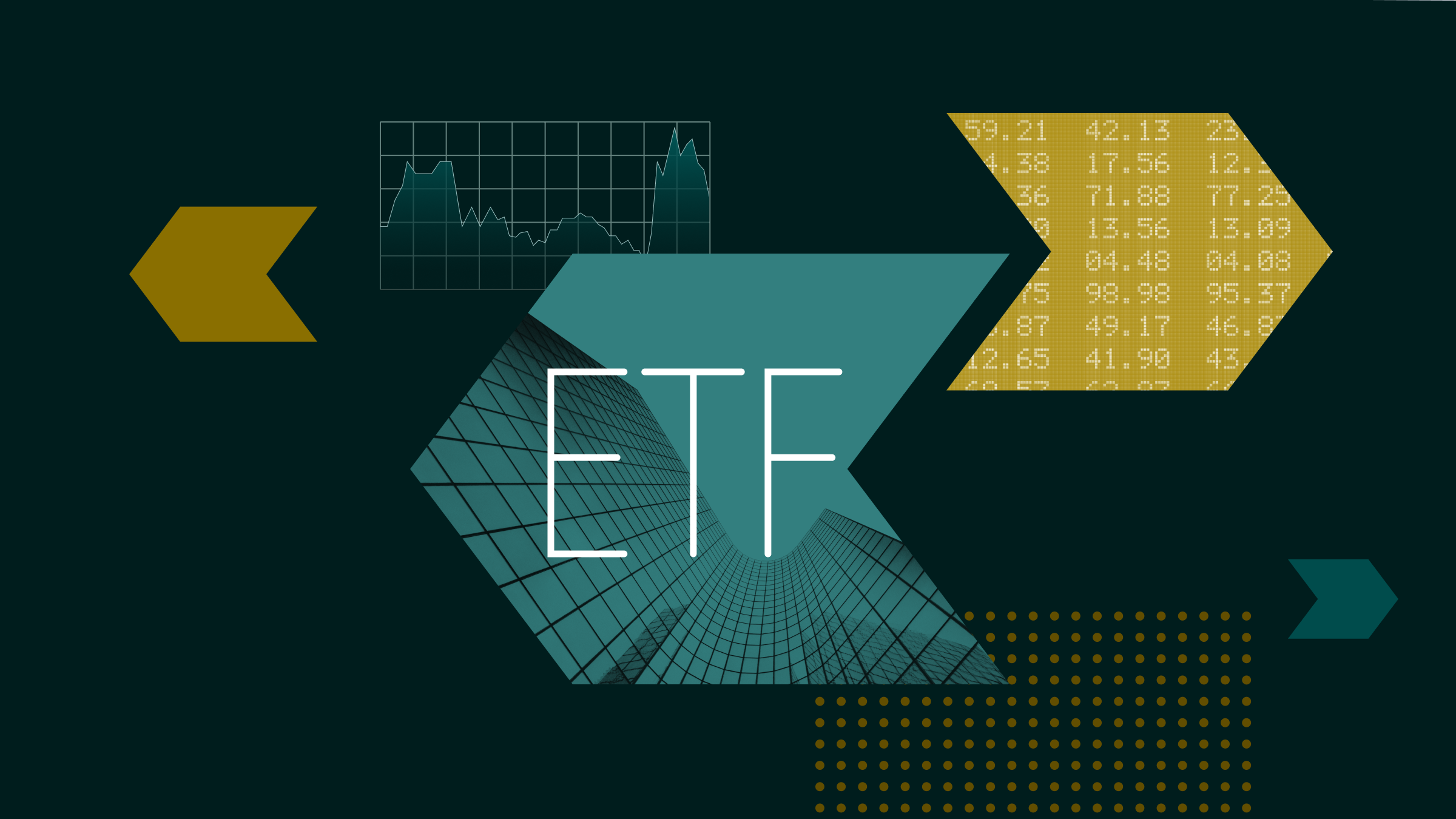For the second time this year, the U.S. Federal Reserve ratcheted up the benchmark interest rate by a quarter percentage point, from 1.75% to 2%, on June 13. The central bank's aggressive approach to rate hikes is a clear indication of the governments' confidence in the resilience of the U.S. economy and the strength of its job market. In fact, the Fed has already hinted at the possibility of two more rate nudges before the end of the year.
The uptrend in interest rates and the economic factors contributing to it are a positive for the banking sector. The S&P Banks Select Industry Index is up nearly 4% so far this year compared to just over 3% gains for the S&P 500 index, as of June 22. While rising rates tend to cause a strain on borrowers, for lenders they create a tailwind of profitability and earnings as the cost of borrowing ticks higher.
Additionally, now that corporate tax rates in the United States have shrunk to 21% from 35%, the biggest banks are enjoying a cash windfall worth billions of dollars, no small portion of which is falling to the bottom line.
Investors may want to turn their attention to some of the leading American lenders with strong fundamentals and a lot of room to grow. Stocks of the following big U.S. banks are trading below or close to their fair value and offer some margin of safety for long-term investors looking to initiate or increase exposure to the banking sector south of the border.
| Wells Fargo & Co. | ||
| Ticker: | WFC | |
| Current yield: | 2.89% | |
| Forward P/E: | 11.9 | |
| Price: | US$53.91 | |
| Fair value: | US$65 | |
| Value: | 17.1% discount | |
| Data as of June 25, 2018 | ||
![]() Wells Fargo (WFC) is the top deposit gatherer in the United States with US$2 trillion in balance sheet assets. The company serves a large customer base through community banking, wholesale banking, as well as wealth, brokerage and retirement business segments.
Wells Fargo (WFC) is the top deposit gatherer in the United States with US$2 trillion in balance sheet assets. The company serves a large customer base through community banking, wholesale banking, as well as wealth, brokerage and retirement business segments.
"Its strategy rests on deep customer relationships, sound risk management and operational excellence," says a Morningstar equity report, adding that the bank "consistently paid less for balance sheet funding than most of its competitors over the past decade, and has also generated more revenue per dollar of assets than most peers."
Wells Fargo is also a rare American bank with a wide economic moat, or sustainable competitive advantage, which is built on access to low-cost funding, switching costs creating customer loyalty, and its core banking operations, particularly wealth management. "Wells has a vast and dense branch network, allowing it to maintain the top share in one third of its markets," says Morningstar equity analyst Jim Sinegal, who estimates the stock's fair value to be US$65.
The bank enjoys an oligopolistic position as the second- or third-largest player in the rest of the market. Thanks to superior credit quality, the bank managed to remain profitable through some of the worst period of its banking history, says Sinegal, who remains confident that "credit losses are likely to remain under control over the course of an economic cycle."
While the sales scandal in 2016 generated negative publicity, customers did not abandon Wells Fargo. In fact, "new programs focused on deepening active relationships will actually generate more revenue," notes Sinegal. The bank recently settled the US$142 million lawsuit as the fallout of the scandal, according to Reuters.
| U.S. Bancorp | ||
| Ticker: | USB | |
| Current yield: | 2.32% | |
| Forward P/E: | 12.5 | |
| Price: | US$50.56 | |
| Fair value: | US$53 | |
| Value: | 4.6% discount | |
| Data as of June 25, 2018 | ||
America's fifth largest bank, ![]() U.S. Bancorp (USB) is funded primarily by low-cost core deposits from the communities it serves across 25 states. The company's four business segments include wholesale and commercial real estate banking, consumer and small-business banking, wealth management and securities services, and payment services.
U.S. Bancorp (USB) is funded primarily by low-cost core deposits from the communities it serves across 25 states. The company's four business segments include wholesale and commercial real estate banking, consumer and small-business banking, wealth management and securities services, and payment services.
"U.S. Bancorp is one of the strongest and best-run regional banks we cover," says a Morningstar equity report. "Few domestic competitors can match its operating efficiency, and for the past 15 years the bank has consistently posted returns on equity well above peers."
The firm's exposure to moaty non-bank businesses coupled with robust core banking operations position it well for future growth. "As the bank continues to make improvements around the margin, we expect consistent market-leading performance as expenses are controlled, regulatory capital is used even more efficiently and interest rates rise," says Morningstar equity analyst Eric Compton.
The bank's continued investment in technology places it at the forefront of the digital revolution sweeping across the industry. "The continued secular trend of the increasing digitization of payments should provide further growth opportunities, and the importance of scale and technology should favour the largest banks, including U.S. Bancorp, over time," says Compton, who pegs the stock's fair value at US$53.
The wide-moat business also benefits from a favourable regulatory environment. Although the scale of its operation causes it to be subjected to the Federal Reserve's annual stress tests, the bank is "not large enough to be considered a global systemically important bank and therefore avoids some of the more onerous regulatory capital requirements," Compton notes.
| JPMorgan Chase & Co. | ||
| Ticker: | JPM | |
| Current yield: | 2.06% | |
| Forward P/E: | 11.8 | |
| Price: | US$104.79 | |
| Fair value: | US$103 | |
| Value: | 1.7% premium | |
| Data as of June 25, 2018 | ||
One of the largest financial institutions in the United States, ![]() JPMorgan Chase (JPM) has more than US$2.5 trillion in assets. The company's wide array of services, offered globally, includes home and auto lending, credit cards, investment banking, treasury and securities services, corporate and commercial real estate lending, trading of fixed income, equity and derivatives, as well as asset and wealth management operations.
JPMorgan Chase (JPM) has more than US$2.5 trillion in assets. The company's wide array of services, offered globally, includes home and auto lending, credit cards, investment banking, treasury and securities services, corporate and commercial real estate lending, trading of fixed income, equity and derivatives, as well as asset and wealth management operations.
JPMorgan is the largest issuer of credit cards in the United States while the company's investment bank is the leading global generator of fees. "JPMorgan benefits from a nearly unrivalled combination of scale and scope within the United States, creating unique opportunities including its partnerships with other leading firms like Visa and Amazon," says a Morningstar equity report.
On the trading side, the company's fixed-income, commodities and currency trading operations are the largest in the world.
JPMorgan Chase is firing on all cylinders this year, with assets under management clocking a record high and core loans growing at a healthy clip as consumer and business confidence soars. The strength of the balance sheet and revenue growth expectations have prompted Sinegal to raise his estimate of the stock's fair value from US$96 to US$103. "The company's balance sheet is strong, with a common equity Tier 1 ratio well above regulatory minimums [mandated by Basel 3] and more than half a trillion dollars in high-quality liquid assets."
With excellent credit quality and strong performance across business segments, the lender is well positioned to further benefit from macroeconomic and regulatory tailwinds. "The Federal Reserve also appears set to continue a slow and steady program of interest rate increases, which should soon contribute billions in additional net interest income," says Sinegal.
| Citigroup Inc. | ||
| Ticker: | C | |
| Current yield: | 1.90% | |
| Forward P/E: | 10.4 | |
| Price: | US$65.75 | |
| Fair value: | US$78 | |
| Value: | 15.7% discount | |
| Data as of June 25, 2018 | ||
A global financial-services company, ![]() Citigroup (C) primarily operates two business segments: the global consumer banking segment, which provides worldwide branch banking, and the institutional clients segment, which provides large customers with investment banking and cash management, among other services.
Citigroup (C) primarily operates two business segments: the global consumer banking segment, which provides worldwide branch banking, and the institutional clients segment, which provides large customers with investment banking and cash management, among other services.
Citi remains a bank of choice for global corporations due to its ability to provide a variety of services across geographies. "Citigroup's truly global presence differentiates the bank from nearly all of its peers," says a Morningstar report. "With significant revenue coming from Latin America and Asia, the bank is poised to ride the growth of these economies through the coming decade."
The bank's exposure to emerging markets provides both strategic diversification and faster growth. "Developing economies should offer an attractive combination of high margins and rapid credit growth over time," particularly in comparison with lower rates and slower growth in Western economies, says Sinegal, who recently nudged the stock's fair value from US$74 to US$78.
While emerging markets could be a source of risk due to their volatile nature, Sinegal assures that with a capital cushion of nearly US$150 billion, "Citigroup is prepared to weather most storms."
Also, Citi is not immune from the cost burdens of regulation and litigation, but "investors should be able to sleep more soundly over the next decade," stresses Sinegal, noting that with complex operations spanning continents, the bank is still considered "too big to fail."
The financial institution has also set out one of the biggest capital return plans among major banks. "Citigroup is prepared to reward shareholders over the next few years, targeting US$60 billion in capital returns" over the next three years as it emerges from a period of restructuring, says Sinegal.


















